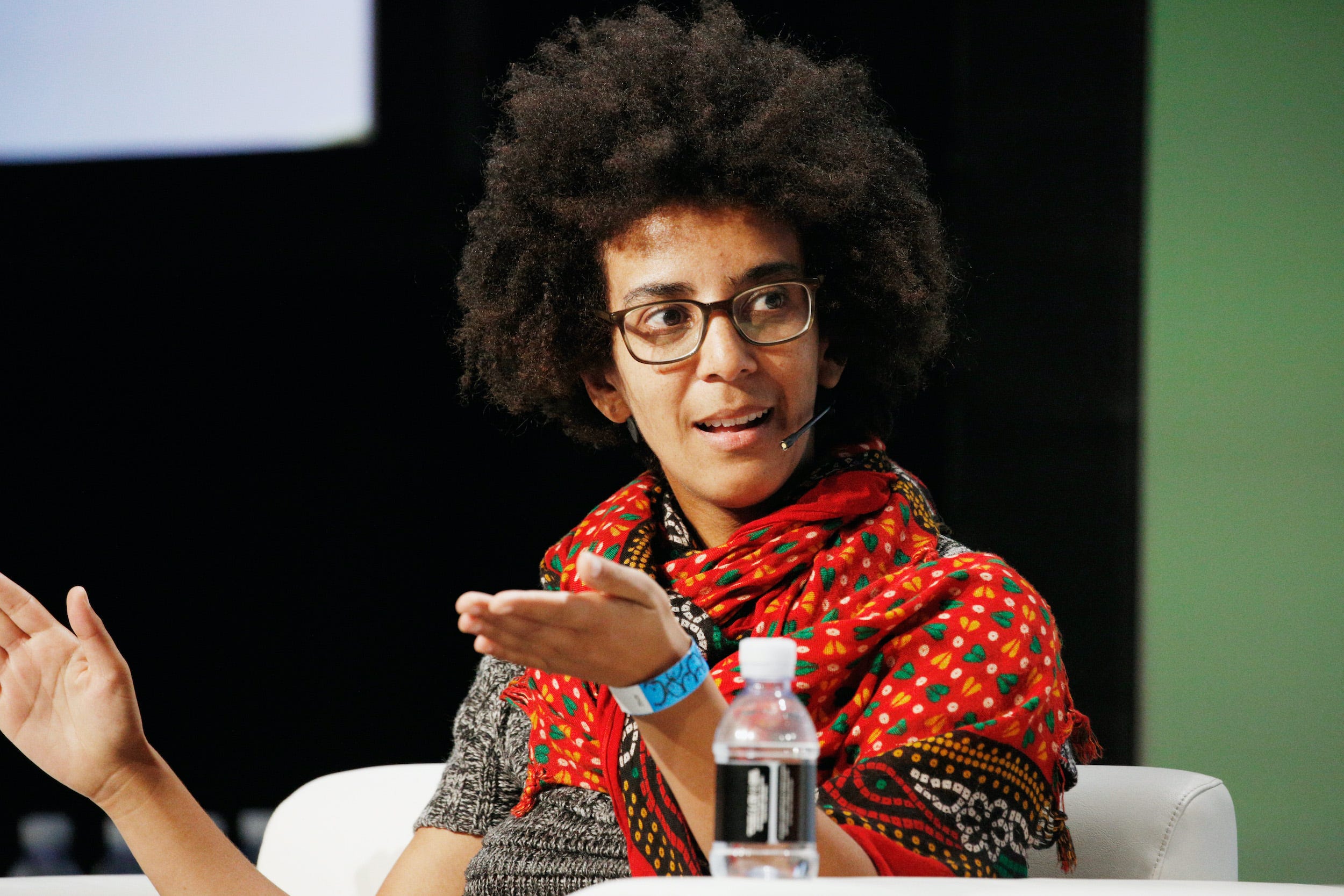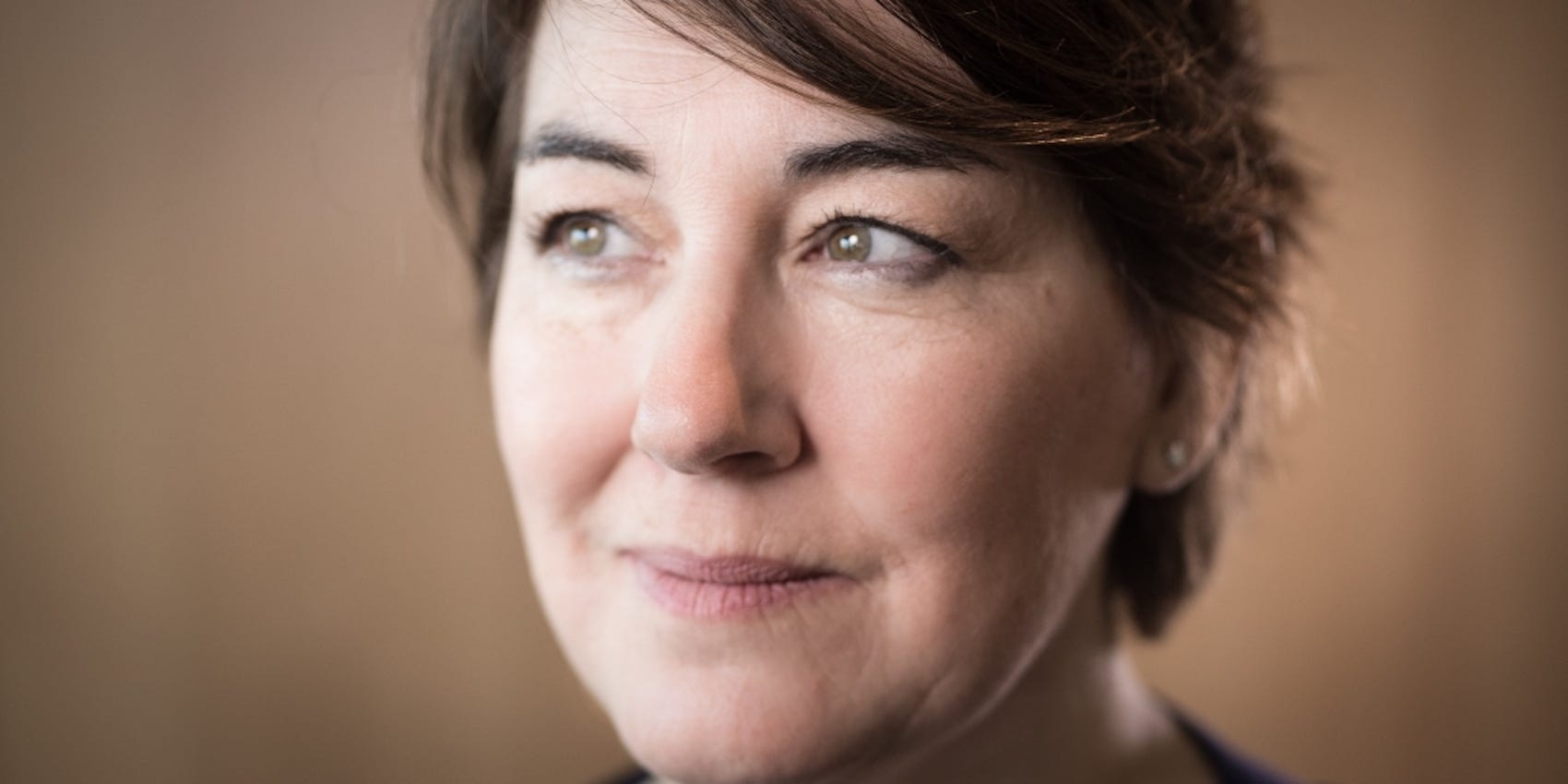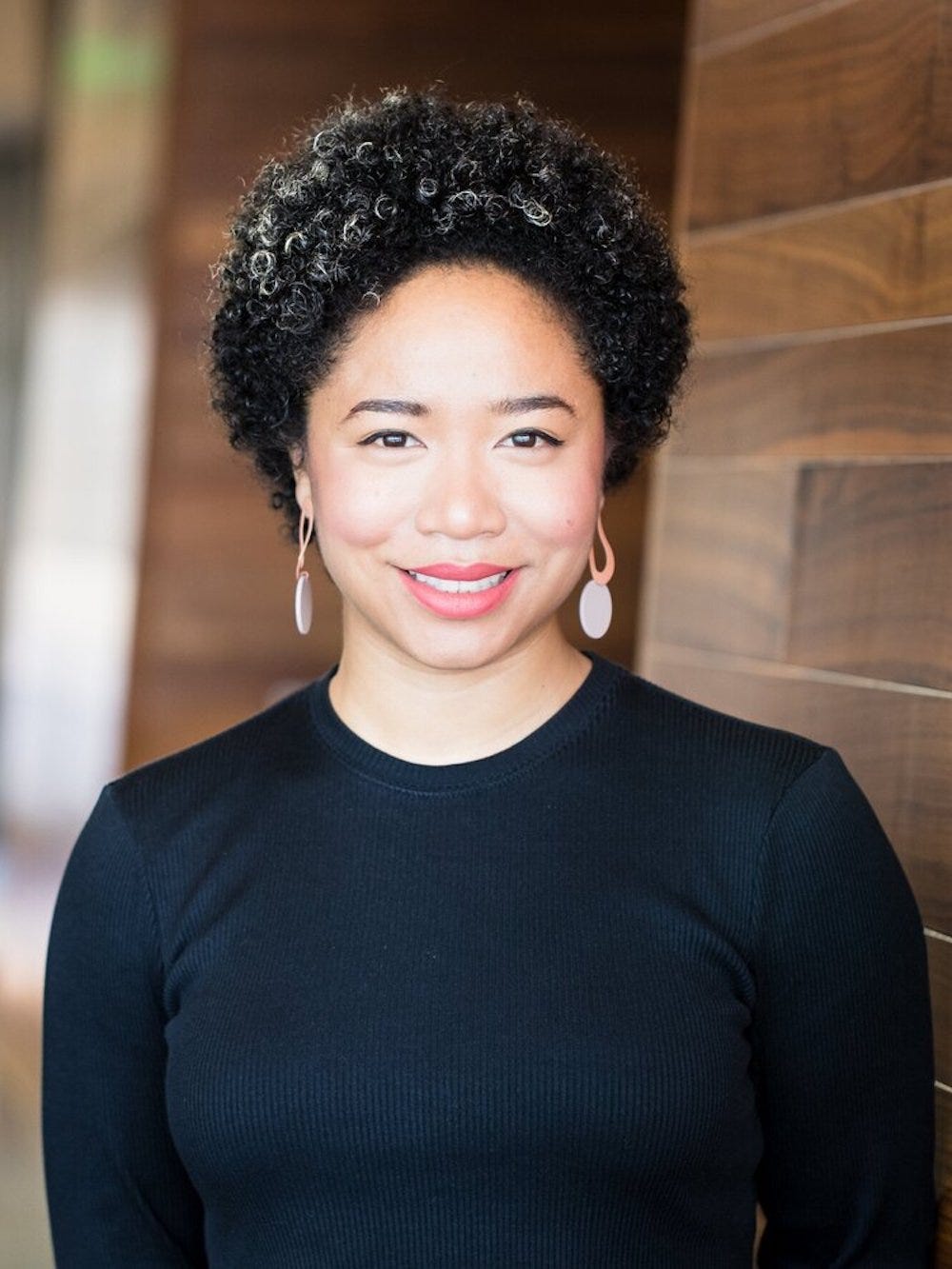
Kimberly White/Getty Images
- Prominent women of color in the tech industry have said Pinterest’s $22.5 million gender discrimination settlement with its former COO Francoise Brougher is another example of how Black women are ignored.
- Senior figures in the industry contrasted the settlement with the way Ifeoma Ozoma and Aerica Shimizu Banks, two Black women who publicly resigned from Pinterest in June, were treated after their departure.
- Ozoma and Banks, who alleged racial and gender discrimination when they resigned, told TechCrunch Tuesday they got less than a year’s severance.
- Meanwhile, Francoise Brougher will receive $20 million as part of the settlement for herself and her attorneys.
- Banks said: “Black women come forward, blazing a trail, revealing injustice and white women coming in and reaping all the benefits of that.”
- Dr. Timnit Gebru, a Black woman and former Google AI researcher, backed Ozoma and Banks, saying she was “livid” that they had “risked everything” to reportedly receive less than one year’s severance. Gebru is currently in a public dispute with Google.
- Visit Business Insider’s homepage for more stories.
Pinterest’s $22.5 million settlement of a gender discrimination suit – one of the biggest-ever public settlements of such a suit in the industry – comes in a week in which large tech companies have left Black women publicly hurting.
Pinterest agreed Monday to pay $20 million to its former COO Francoise Brougher and her attorneys for a gender discrimination lawsuit she filed in August. Both Pinterest and Brougher agreed that a further $2.5 million would go to programs supporting women and underrepresented communities in tech.

The company admitted no wrongdoing in the settlement.
Following the news, senior figures in the industry, including former Google AI researcher Dr. Timnit Gebru, contrasted the settlement with the way Ifeoma Ozoma and Aerica Shimizu Banks, two Black women who publicly resigned from Pinterest in June, were treated after their departure.
Some said the settlement was another example of how Black women are ignored in the sector.
While she was working at Pinterest, Ozoma said a male colleague shared her private information with racist groups online, and that she struggled to get a higher salary. Banks said her manager lied about her pay and made "disparaging comments" about her ethnicity in front of colleagues.
Pinterest hired a white man to replace them, Ozoma tweeted in June after both women quit.

LinkedIn/Ifeoma Ozoma
In an interview with TechCrunch on Tuesday, Ozoma and Banks said they got less than a year's severance pay when they left Pinterest.
"This follows the time-honored tradition in America where Black women come forward, blazing a trail, revealing injustice and white women coming in and reaping all the benefits of that," Banks told TechCrunch.
Ozoma said Monday, after the news broke of the Brougher settlement: "We came forward about a company and harmful culture literally nobody had spoken about before on the record. With our identities attached, in the midst of a pandemic. We were and still are treated like trash by Pinterest leadership."
—Ifeoma Ozoma (@IfeomaOzoma) December 15, 2020
Ozoma later tweeted that the situation was "sickening," adding that Pinterest still doesn't care.
Banks tweeted the pair coming forward "was the right thing to do, no matter what," tagging Ozoma in the tweet.
—Aerica Shimizu Banks (@erikashimizu) December 14, 2020
In the same hour she tweeted again saying, "Black women lead, and get left behind."
Banks was in charge of Pinterest's public-policy office in Washington DC for just over a year, while Ozoma worked at the company for almost two years as policy and social impact manager, according to their LinkedIn profiles.

Aerica Shimizu Banks
The pair told TechCrunch they'd exhausted all of their legal options, and won't go through with a lawsuit. Banks said that Brougher had more resources to pursue legal action against the company because of her former senior position, per TechCrunch.
Ozoma said that "no progress has been made here because no rights have been made with people who harm has been done to."
In response to Brougher's tweet about reaching a settlement with Pinterest, Banks congratulated the former Pinterest COO and said it was "exciting" and "surprising" news. Brougher tweeted back, "Thank you!"
Ozoma and Banks are among many women of color in tech who feel they have been discriminated against. Gebru, a leading AI researcher formerly employed by Google, said December 2 she was fired by the tech giant over an email she sent that criticized the company's treatment of minorities. Google claims Gebru resigned.
On Monday, Gebru said Pinterest had ignored Ozoma and Banks' claims about the inequalities they faced in the company.
In response to the Pinterest settlement, Gebru said she was "livid" that Ozoma and Banks reportedly got less than a year's severance when they had "risked everything."
In a follow-up tweet, Gebru said: "Its like tech companies are literally trying to figure out how many ways to tell Black women that they are discardable objects."
—Timnit Gebru (@timnitGebru) December 14, 2020
Read more: Meet the top 36 public relations pros in the tech industry
Former Slack employee Kristy Tillman, who is Black, held roles as head of communication design and then head of global experience design at the company. She said that Ozoma and Banks paved the way for Brougher to benefit from the $22.5 million settlement.
—Kristy Tillman (@KristyT) December 14, 2020
—Malcom Glenn (@malcomglenn) December 15, 2020
—Joan Donovan, PhD (@BostonJoan) December 15, 2020
—Karla Monterroso (@karlitaliliana) December 15, 2020
Pinterest didn't immediately respond to Business Insider's request for comment regarding Ozoma and Banks' reaction to the $22.5 million settlement.
After the pair's departure from the firm in June, Pinterest told Business Insider: "We took these issues seriously and conducted a thorough investigation when they were raised, and we're confident both employees were treated fairly.
"We want each and every one of our employees at Pinterest to feel welcomed, valued, and respected," it said. "We're committed to advancing our work in inclusion and diversity by taking action at our company and on our platform. In areas where we, as a company, fall short, we must and will do better."
Earlier this month on December 2, Pinterest shareholders sued the company, its top executives, and board of directors over allegations of discrimination against women and employees of color and failing to address claims of workplace bias.
More than 200 Pinterest employees staged a virtual walkout in August and 450 signed an online petition demanding pay transparency and equality, and increased diversity in senior ranks of the firm.
Pinterest in August added its first two Black board members, hired a new head of diversity, and commissioned an independent review of its workplace culture.
